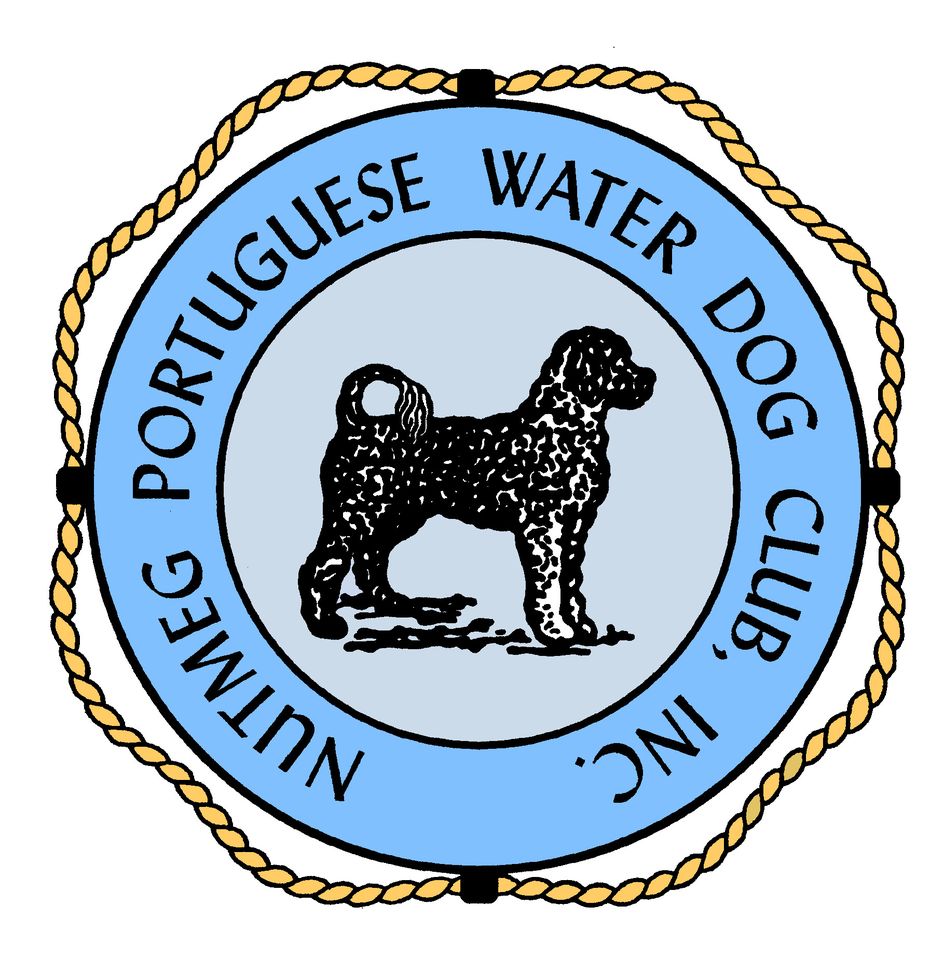Answers to Your Questions About the PWD
Frequently Asked Questions

Frequently Asked Questions
PWDs were bred to be a working member of a Portuguese fisherman’s crew. The Lion Cut, which has the shaved rear end, is a utilitarian haircut from their working days on the fishing boats. By shaving the back end, the dog’s “motor” (they kick their back legs out to propel themselves forward) wouldn’t be weighed down with heavy, wet hair. The front end of the dog was left in a long coat to protect and insulate the lungs, heart, and other vital organs. To avoid a wet stinky face from eating fish and long hair blinding the dog, their faces were shaved from above the eyebrows to their throat.
Daily, or at least weekly, brushing is recommended at home. Then, they should get a grooming with haircut every 6 to 8 weeks. The PWD coat is not fur, it is real hair, so it grows continuously just like ours does.
If you use a groomer, it is also important to find a groomer who knows how to groom a PWD and doesn’t groom it like another breed. There are grooming photos/guides you can share with your groomer if they are unfamiliar with the PWD.
For the average purchase price of a PWD puppy, check with multiple breeders in your area who are on the PWDCA Breeder's Referral list. Be wary of prices far above or far below the average of the breeders you speak to.
CLICK HERE for a link to the PWDCA Breeder's Referral list
Like families each puppy is different and has varied energy levels. Overall, as a breed, PWDs look for mental and physical stimulation, and attention from their humans. They have a long and energetic puppyhood. Getting to know your breeder so that they can match you to a puppy with an appropriate temperament is a great way to find a great dog for your family.
A fully fenced yard is obviously ideal. It allows your dog a safe, and psychologically satisfying way to play, train, and exercise. It also can provide owners with a break from walking in wet, or snowy/icy conditions.
If a fenced yard isn't feasible, electric fencing is an option. However, having an electric fence involves a great deal of initial training on part of the family so consult your breeder as to how the fence will work with your puppy. Also, remember that an electric fence does not keep other animals *out* of your yard.
PWDs are not likely to deal well with an overhead trolley except if used very sparingly during inclement weather, or if you are sick or injured and need to temporarily limit your own walking.
PWDs do NOT do well as outside dogs. They love being with their humans. If you are going to be outside for 12 hours, they'll happily accompany you. Wherever their human "pack" is, that's where they want to be. As adults, they can do fine being in the house alone at home for a normal workday, as that is where their pack lives. But isolating them from their human family by keeping them as an outdoor dog usually ends up with a PWD that barks constantly, becomes frustrated, destructive, and neurotic. If you need or want an outdoor dog, the PWD is not the breed for you.
Just because the word Water is in their name, some PWDs do not take to swimming naturally. But if introduced to water in a positive and rewarding manner, many of these dogs go on to be enthusiastic water-holics.
PWD puppies are a very mouthy breed. As the puppy develops, they go through a somewhat lengthy, mouthy phase where they will bite and chew on anything or anybody. Once they get through their mouthy stage, they can be fine with children, especially older children. Talk with your breeder so that they can match you to a puppy with an appropriate temperament for you and your family.
Size varies, but male PWDs range from 20" to 23" at the withers (top of the shoulder), and weigh from 42 to 60 lbs.
Females range from 17" to 21" at the withers, and weigh from 35 to 50 lbs.
The average lifespan is probably 11 to 12 years old. But this also varies with some dogs living to 14 to 15 years old, and some passing at earlier ages.